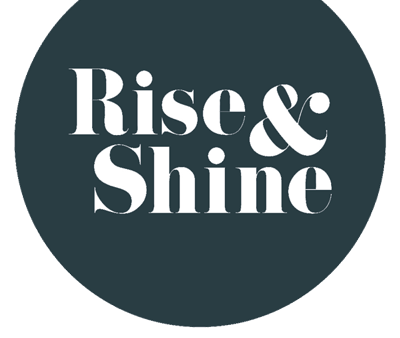I recently facilitated a Twitter conversation through NZLEAD to better understand workplace wellness. NZLEAD is a digitally based community that invites participation from hundreds of OD, H&S, L&D, and HR professionals from all around the world.
It began with this question:
What health and wellness initiatives are currently being offered by your organisation?

The response was overwhelming, and some of the initiatives included:
•Reduced health insurance
•An onsite gym and company sports teams
•Onsite yoga and pilates
•Cycle promotion
•Walking groups
•Healthy recipes
•Volunteering and health screening
•Standing or walking meetings
•Eye tests
•Fly jabs
•Health checks
More...
As a Wellness Coach and Consultant, this was all music to my ears as there is growing research to suggest that nurturing employee health and wellness has a significant impact on productivity, which - as we know - has a direct impact on company profitability.
An HR generalist suggested her former employer pumped oxygen into the workplace every afternoon. I assure you, there are better long-term solutions to managing diminishing energy levels during those afternoon slumps!
The most interesting thing I discovered from this discussion was how many professionals defined wellness by the physical dimension alone.
Employers seemed to offer great “physical” wellness initiatives, however were lacking or hadn’t even considered the other three elements of wellness; mental, emotional and spiritual (through our values).
In western culture we are taught to think each part is separate from the other, however they are all intertwined and integrated.
There is a lot of research highlighting how our thoughts affect our behaviour and ultimately our health. It is important individuals understand how our emotions work and how repressed emotions can create serious illness in our bodies. We need to appreciate how our values and beliefs can directly affect our everyday health.
I went on to ask:
What health and wellness initiatives have had the biggest impact on personal effectiveness and increased productivity in your workplace?
Many highlighted resilience/stress management initiatives were having the most positive impact on the organisation.
Resilience; our ability to bounce back – stems from our thoughts and our emotions. Prolonged stress, burnout and exhaustion are generally caused by a lack of balance and recovery. Activities such as mindfulness (covered in our mind workshop) are said to be one of the most powerful strategies in developing resilience alongside understanding the power of your thoughts and what causes stress.
Increasing personal effectiveness and productivity requires more than just physical wellness initiatives. Integrating mental, emotional and spiritual wellness education is fundamental.
So how do we go about creating a sustainable culture of health wellness?
The links between staff wellness and engagement, motivation, productivity are clear. As are - in contrary - the links with absenteeism, turnover and sick leave.
Retention is critical in high performance cultures, as is consistency in leadership direction. So when times get tough, maintaining the budget for wellness initiatives not only delivers employee satisfaction, but is also far cheaper than recruitment.
High performance cultures are created by making wellness fun, maintaining awareness, driving enthusiasm and partnering up with different providers to mix it up and keep it alive.
Ultimately health and wellness cultures are developed when everyone is on board and everyone understands ‘why’.
Wellness cultures take shape when people take responsibility for their own wellness. They stop eating lunch at their desks, go on walking meetings, exercise discipline around their workplace hours (while delivering KPIs) and ultimately, they aim for overall balance across their responsibilities in and out of the office.
So many bad practices are born through organisational culture 'norms'. Resetting these requires stepping out and forging a new path in our individual actions. The executive and management team need to ‘walk the talk’.“
When there is a culture of wellbeing among employees the benefits are widespread,” David Cullen – People & Talent Associate.
At Rise and Shine Coaching we take an integrated perspective on wellness, focusing on the four dimensions of wellness – Physical, Mental, Spiritual and Emotional. We offer short and sharp workshops on each dimension and take on a long-term view to establishing a culture of wellness.
When individuals start to take responsibility for their effectiveness, by scheduling in time to recharge and renew themselves (just as well as they do with their phones) they discover they can maintain consistent high performance, motivation, positivity, clarity and focus in everything they do.
What steps could you take to make your wellness programme more balanced and integrated?
